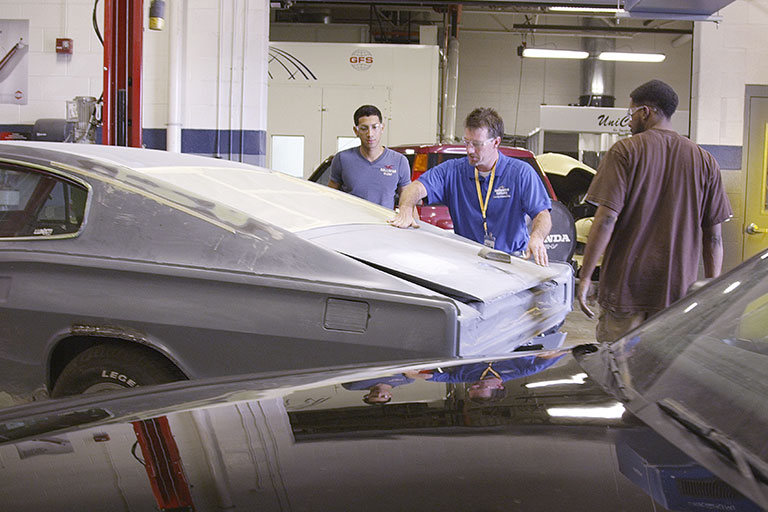Master industry-current auto body repair techniques with our accredited, hands-on training programs.
What is Collision Repair Technology?
Knowledge of the latest technology is essential for today's Collision Repair Technician. Changes within the industry have made it necessary for technicians to become skilled in plastic repair, repairing aluminum, and the application of waterborne materials such as basecoats and primers. Program instruction using I-CAR curriculum is delivered by lecture. Hands-on training is provided by the National Institute for Automotive Service Excellence (ASE) certified Master Collision Repair and Refinish Technician and meets ASE standards. Full time students can take advantage of the Snap-on Student Excellence Program which allows them to purchase Snap-on tools at discount prices. Many other tool companies provide student programs such as Cornwell, Mac, and Matcoto name a few.

Getting Started
What are my degree, diploma, and certificate options?
How Do I Pay For This?
Worry no more. With the lowest tuition in Kentucky, financial aid options, and a helping hand to guide you through the application process, WKCTC has you covered. WKCTC will help you reach your goals at a price that won't break the bank.
What Else Do I Need to Know?
Field Licensure
Some employers in the automotive industry require ASE certification. ASE certification is not required to complete the program at the college, but students are encouraged to become ASE certified to improve their job prospects. Depending upon the certification specialties chosen to complete the degree there may be additional testing needed in addition to completing the program. Please consult with the program advisor for specific testing requirements.
Accreditation
The Collision Repair program at WKYCTC is accredited by the National Automotive Technicians Education Foundation (NATEF).
Length of Program
You can earn an associate in applied science degree in two years if you maintain full-time status.
This information should not be considered a substitute for the KCTCS Catalog. You should always choose classes in collaboration with your faculty advisor to ensure that you meet all degree requirements.
